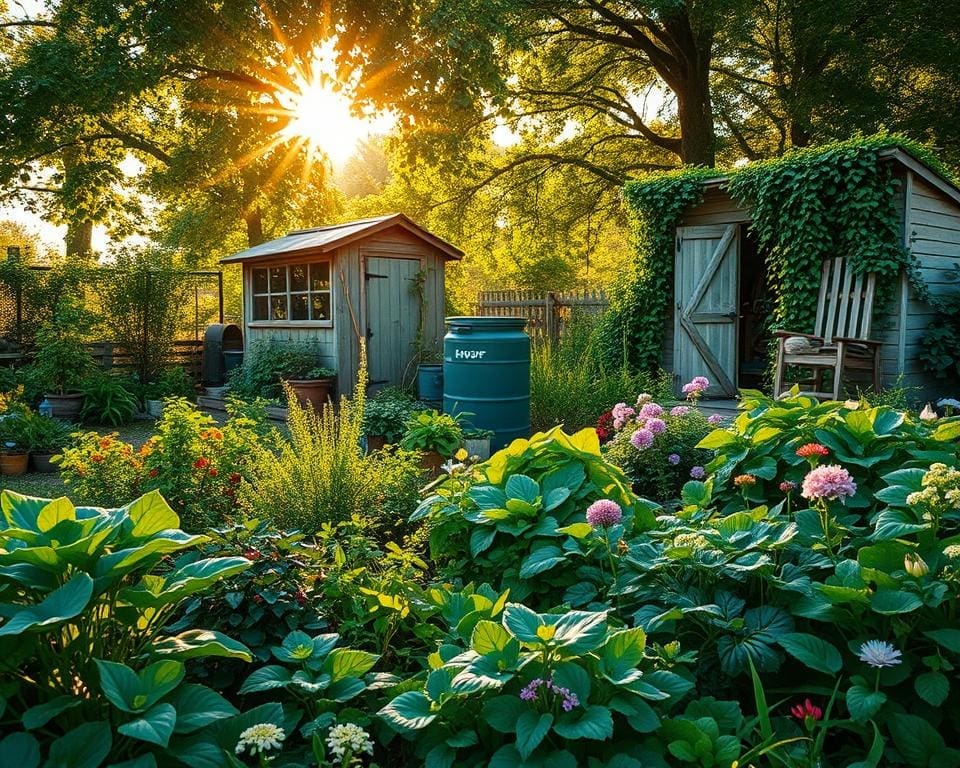Embracing eco-friendly gardening is not just a trend; it’s a commitment to environmental sustainability that can transform your outdoor space into a thriving ecosystem. By adopting sustainable gardening practices, you can cultivate a garden that not only flourishes but also supports the planet’s health. This article will provide you with essential green gardening tips, empowering you to choose organic gardening methods that benefit both your garden and the environment. Join us as we explore practical steps to create a beautiful and responsible garden, contributing positively to our world.
Understanding Eco-Friendly Gardening Practices
Eco-friendly gardening encapsulates a range of techniques and methods aimed at minimising environmental impact while enhancing the natural beauty of our surroundings. By embracing these approaches, gardeners can contribute positively to the earth’s ecosystems. The essence of sustainable gardening revolves around utilising resources responsibly, promoting biodiversity, and reducing reliance on harmful chemicals. This foundation sets the stage for exploring the myriad benefits of sustainable gardening.
What is Eco-Friendly Gardening?
Eco-friendly gardening explained involves cultivating plants in a manner that respects the environment. Techniques may include using organic fertilisers, implementing crop rotation, and incorporating natural pest control. Gardeners often choose to avoid synthetic pesticides and herbicides in favour of methods that support the ecosystem, such as planting companion species or introducing beneficial insects. By understanding and applying these green practices in gardening, individuals can create beautiful spaces that thrive in harmony with nature.
The Importance of Sustainable Gardening
The benefits of sustainable gardening extend far beyond just aesthetics; they play a crucial role in conserving resources and combating climate change. Engaging with eco-friendly gardening encourages the use of water-efficient methods, provides vital habitats for local wildlife, and helps in carbon sequestration. Real-world examples abound, where communities have implemented sustainable practices and witnessed improvements in soil health and local biodiversity. Adopting these techniques inspires a collective movement towards more responsible gardening, fostering a healthier planet overall.
How to maintain your garden in an eco-friendly way?
Maintaining a garden sustainably involves adopting practices that not only protect the environment but also enhance garden health. Focusing on organic methods for pest control, utilising native plants, and embracing composting are key strategies for any eco-conscious gardener.
Choosing Organic Methods for Pest Control
Organic pest control employs natural solutions that safeguard beneficial insects while managing pests effectively. Options like neem oil and diatomaceous earth stand out for their ability to target unwanted pests without disrupting the ecosystem. This practice not only minimises chemical use but aligns with eco-friendly soil management principles that benefit your garden in the long term.
Utilising Native Plants for Environmental Benefits
Integrating native plants into your garden offers numerous environmental advantages. These plants, already adapted to local conditions, require less water and cultivation effort. They provide essential habitats for local wildlife, including birds, butterflies, and beneficial insects. Incorporating native plants supports local biodiversity while creating a vibrant and resilient garden landscape.
Composting for Healthy Soil
The composting benefits are profound for sustainable gardening. Creating compost enriches the soil naturally, enhancing its structure and fertility. This process reduces waste and supports plant health by providing vital nutrients. Implementing composting as a regular practice fosters eco-friendly soil management, ensuring your garden thrives while contributing positively to the environment.
Water Conservation Techniques for Gardens
In the quest for a thriving garden, mastering water conservation in gardening emerges as a fundamental principle. Employing effective techniques not only conserves an essential resource but also boosts plant health and sustainability. Among these methods, rainwater harvesting and drip irrigation stand out as ideal practices to adopt for eco-conscious gardeners.
Implementing Rainwater Harvesting Systems
Rainwater harvesting involves collecting and storing rainfall for future use. This practice significantly reduces reliance on mains water while providing a free and eco-friendly resource for irrigation. Homeowners can install barrels or tanks to capture water from roofs during rainy periods. The collected water can be utilised for gardens, providing essential moisture while supporting sustainable watering practices. Not only does this approach help conserve water, it also promotes a more self-sufficient gardening lifestyle.
Drip Irrigation vs. Traditional Methods
Choosing between drip irrigation and traditional watering methods can greatly impact water conservation in gardening. Drip irrigation provides direct delivery of water to plant roots, minimising waste and evaporation. This targeted approach results in healthier plants and maximised efficiency. The drip irrigation benefits include reduced water consumption, which aligns perfectly with environmental sustainability goals. In contrast, traditional methods can lead to runoff and overwatering, detracting from the overall gardening experience. By embracing methods that prioritise conservation and optimal plant growth, gardeners contribute to a healthier ecosystem.
Creating a Biodiverse Eco-System in Your Garden
Embracing biodiversity in gardening significantly enhances the health and beauty of your outdoor space. Attracting various species, especially pollinators, not only boosts plant reproduction but also enriches the overall garden ecosystem. For gardeners looking to foster this vibrant environment, understanding the role of pollinators and creating wildlife habitats in gardens is essential.
The Role of Pollinators in an Eco-Friendly Garden
Pollinators play a crucial role in the ecosystem by facilitating the reproduction of flowering plants. Incorporating pollinator-friendly plants into your garden offers numerous benefits, including improved yields of fruit and vegetables. Selecting a variety of native blooms provides essential nectar and pollen for bees, butterflies, and other pollinators throughout the seasons. Growing these plants helps ensure a thriving and diverse ecological setting.
Building Habitats for Wildlife
Creating wildlife habitats in gardens is vital for sustaining local ecosystems. Simple initiatives can transform your garden into a sanctuary for various species. Consider the following methods:
- Establish bug hotels using natural materials to provide shelter for beneficial insects.
- Create small ponds or water features that offer hydration and a habitat for amphibians.
- Plant a range of native species to supply food and refuge for local wildlife.
These practices contribute to a rich biodiversity in gardening, transforming your garden into a thriving ecosystem that supports both wildlife and plant life.
Choosing Sustainable Garden Products
When embarking on the journey of eco-friendly gardening, the choice of sustainable garden products plays a pivotal role. Selecting eco-friendly gardening tools crafted from recycled materials or responsibly sourced wood not only supports the environment but also enhances your gardening experience. Brands that prioritise sustainability often offer tools that are durable and effective, ensuring your garden flourishes without harming the planet.
Incorporating organic gardening supplies such as natural fertilisers and herbal pest deterrents can significantly improve your garden’s health. These options are not only effective in nurturing your plants but also safe for local wildlife and the surrounding ecosystem. By choosing such products, you contribute to a gardening practice that respects and preserves the environment.
Ultimately, making informed purchasing decisions regarding sustainable garden products allows you to align your gardening practices with your eco-conscious values. Every choice you make—whether it’s selecting an eco-friendly gardening tool or opting for organic supplies—contributes to a more sustainable future, cultivating not just your garden but a healthier planet for generations to come.









